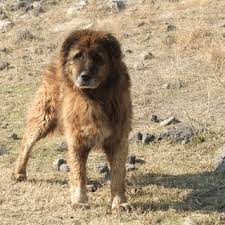
Rize Koyun
Conditions of detention
Rize Koyun sheep are well-suited to mountainous and rugged terrains. They thrive in open pastures where they can graze freely.
Useful Fact: These sheep are highly adaptable and can withstand the humid and rainy climate of the Rize region.
Nutrition and diet
A balanced diet of grasses, hay, and grains is essential for their health. Supplementing their diet with minerals and vitamins can help maintain their overall well-being.
Useful Fact: Providing access to fresh water and adequate forage is crucial for their health and productivity.
Health
Rize Koyun sheep are generally healthy but can be prone to certain conditions such as parasites and foot rot, common in humid environments.
Useful Fact: Regular health check-ups, deworming, and maintaining good hygiene can help prevent and manage health issues.
Grooming and care
Shearing is necessary to manage their wool growth and prevent overheating. Regular hoof trimming is also important to prevent foot-related issues.
Useful Fact: Ensuring they have dry shelter during rainy seasons can help prevent foot rot and other moisture-related health problems.
Education and training
While sheep are not typically trained like dogs, Rize Koyun sheep can benefit from gentle handling and acclimatization to human interaction, which makes management easier.
Useful Fact: Using consistent, calm handling techniques can reduce stress and improve their response to management practices.
Toys and entertainment
Sheep do not require toys, but providing a varied grazing environment can help keep them mentally stimulated and healthy.
Useful Fact: Rotational grazing can help keep the pastures healthy and provide the sheep with fresh forage.
Safety
Predator protection is crucial, especially in mountainous regions where wolves and other predators may be present. Secure fencing and guardian animals like dogs can help protect the flock.
Useful Fact: Electrified fencing can be an effective deterrent against predators.
Accessories
Basic accessories such as feeding troughs, waterers, and shelters are necessary. Ensure these are durable and suitable for the outdoor environment.
Useful Fact: Portable shelters can provide necessary protection during harsh weather conditions.
Socialization
Sheep are social animals and thrive in flocks. Keeping them in groups helps reduce stress and promotes natural behaviors.
Useful Fact: Introducing new sheep gradually to the flock can help prevent aggression and establish a harmonious social structure.
Travel and Transportation
When transporting sheep, ensure they have enough space and ventilation. Short trips are less stressful for them.
Useful Fact: Using trailers designed for livestock can ensure their safety and comfort during transport.
Behavior and psychology
Rize Koyun sheep are known for their hardy and resilient nature. They exhibit typical flock behavior, relying on the group for safety and comfort.
Useful Fact: Observing their behavior can provide early signs of illness or distress, allowing for prompt intervention.
Legal aspects
Owning and managing sheep may be subject to agricultural regulations and animal welfare laws in Turkey.
Useful Fact: Familiarizing yourself with local regulations regarding livestock management can help ensure compliance and promote good animal husbandry practices.


